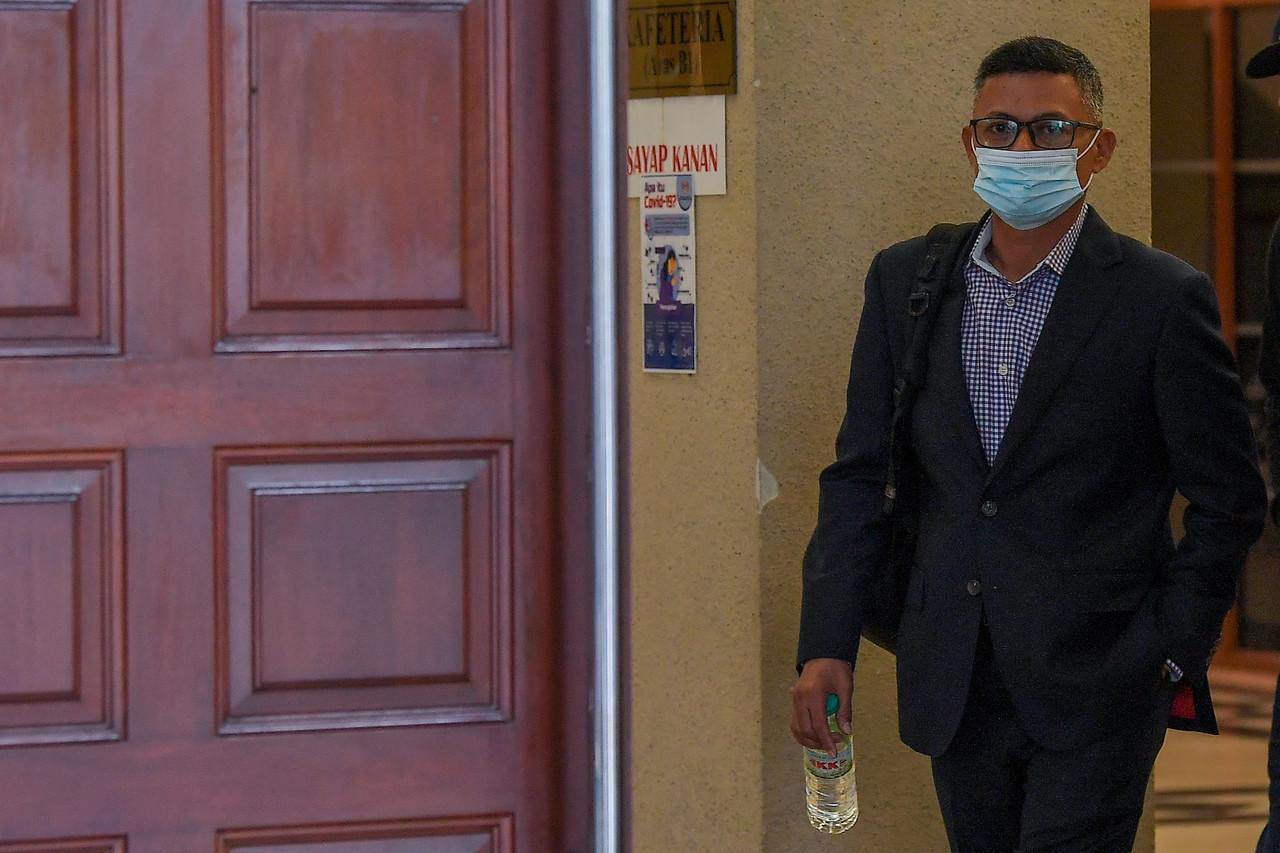Ex-CEO tells court he wanted to resign as he was worried about 1MDB
Mohd Hazem Abdul Rahman said he felt that the company was entering the largest corporate liability trap in history.
Just In
A former 1MDB CEO told the High Court in Najib Razak’s corruption trial that he wanted to resign in 2013 as he was worried about the company which he felt was entering the largest corporate liability trap in history.
Mohd Hazem Abdul Rahman, 48, said he emailed chief finance officer Azmi Tahir about his concerns on the number of projects and funds for portfolios relating to 1MDB which he felt was unrealistic.
Hazem, the 10th prosecution witness, was CEO and a member of the 1MDB board from March 2013 to January 2015.
Reading from his witness statement during examination by deputy public prosecutor Mohamad Mustafa P Kunyalam, he said he felt pressured during that time to make decisions on the company’s loans and investments.
“I started to understand that several projects funded and managed by 1MDB had caused the company’s financial position to be problematic as there were too many domestic and foreign debts incurred by 1MDB based on the plans of fugitive businessman Low Taek Jho or Jho Low, which might not be paid back.
“I was worried when 1MDB ran out of funds in the country while the company’s funds abroad could not be repatriated,” he said.
He said he was also suspicious that 1MDB funds abroad might have been use without the knowledge of the company management.
“I raised the matter several times with Azlin (Azlin Alias, Najib’s chief private secretary) and to then-1MDB chairman Lodin Wok Kamaruddin to be brought to the attention of Najib, but the answer I received was that he had been informed of the matter.
“At the end of 2014, Najib told Lodin that the 1MDB funds abroad could not be brought back even though 1MDB was facing financial constraints in servicing its RM2.5 billion debt to Maybank,” he said, adding that the matter was against business ethics.
Hazem also said he concluded that the investment plans by Jho Low were only to make things appear like real transactions.
“Jho Low ordered the members of the 1MDB board and management to believe that the business was for the benefit of the company before being followed by fund raising as the company had to borrow to obtain capital.
“I started to be suspicious of funds through fund raising which were abused after they were sent overseas and we did not have full access and did not know the status of the funds,” he said.
He said according to the business plan discussed by Jho Low at the board of directors’ level, it was a normal plan with normal risks and profits.
“The unusual matter in the business plan was that fund raising was through debts but the funds accumulated could not used. Its status was unknown and final answer was that they were investments by fund managers.
“Even more suspicious was that the board did not explain the complete status of investments. When auditors raised the issues of the fund, Jho Low in a panic prepared a report and script for Najib and for us at 1MDB to answer their queries.”
Hazem said in each joint venture developed by 1MDB, Jho Low would ask him to send the progress of the project and give instructions through email.
“I also got to know about the progress of the 1MDB joint venture with Aabar Investment PJS Ltd through discussions with Azmi and 1MDB lawyer, Jasmine Loo.
“I knew it would be starting with the issuance of a US$3 billion bond to invest in the project.
“The bond fund was not issued through government guarantee as there were too many government guarantees issued by the government of Malaysia for government companies including 1MDB,” he said.
When asked by Mustafa if the US$3 billion fund was approved without a support letter from Najib himself, Hazem said no.
He said there was not much difference between a government guarantee and letter of support as in the end, it would require the intervention of the government to pay the debt if 1MDB was unable to settle it.
Najib is facing four counts of abusing his position to solicit bribes amounting to RM2.3 billion from 1MDB funds and 21 charges of money laundering involving the same amount.
The trial will continue before justice Collin Lawrence Sequerah.
Subscribe to our newsletter
To be updated with all the latest news and analyses daily.
